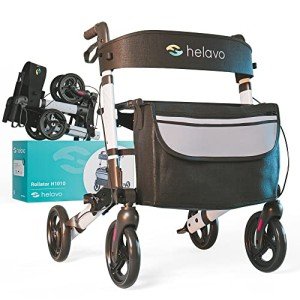Your Worst Nightmare Concerning Elderly Walker It's Coming To Life
The Importance of Elderly Walkers: Enhancing Mobility and Independence
As individuals age, their bodies undergo various changes that may affect their mobility. Conditions such as arthritis, osteoporosis, and other chronic ailments can make navigating the environment challenging for the elderly. Thankfully, assistive gadgets like walkers can substantially enhance mobility, making sure that seniors keep their self-reliance and lifestyle. This article will explore the various kinds of walkers offered, their benefits, and important factors to consider when choosing the right one.
Comprehending the Different Types of Walkers
A walker can provide the needed support for seniors battling with mobility. However, not all walkers are produced equal. Here's a detailed breakdown of the various types of walkers offered.
Type of Walker
Description
Best For
Standard Walker
A lightweight frame with four legs providing standard support.
Individuals requiring assistance while walking.
Two-Wheeled Walker
A walker with 2 wheels at the front permitting much easier motion.
Users who need more mobile support for faster walking.
Four-Wheeled Walker
A rollator with four wheels, brakes, and a seat.
Active seniors who need more mobility and a location to rest.
Knee Walker
A specialized walker with a padded platform for resting the knee.
Individuals recovering from foot or ankle injuries.
Folding Walker
A walker that can be collapsed for easy storage and transportation.
Seniors needing benefit when traveling.
Table 1: Types of Walkers
Benefits of Using a Walker
Walkers offer a plethora of advantages for seniors, including:
- Enhanced Stability: Walkers provide extra support to the user, assisting to cultivate confidence while walking.
- Improved Balance: With a walker, seniors can rearrange their weight, enhancing balance and decreasing the risk of falls.
- Increased Independence: Users can move around their homes and neighborhoods more easily, permitting them to engage in social activities.
- Decreased Pain: Walkers can reduce the impact on joints and muscles, making motion less uncomfortable for conditions like arthritis.
- Versatile Usage: Walkers appropriate for numerous environments, whether inside, outdoors, or on uneven surface areas.
Table 2: Benefits of Using a Walker
Choosing the Right Walker
Picking the best walker is important to taking full advantage of mobility and guaranteeing convenience. Here are some factors to consider:
- Weight Capacity: Ensure that the walker can support the user's weight. The majority of walkers have actually a specified weight limitation.
- Height Adjustment: Adjustable height features make sure that the walker is set to the proper level for the user's height, promoting excellent posture and convenience.
- Wheels vs. No Wheels: Depending on the user's abilities and environment, a walker with wheels may be more helpful for motion, while a non-wheeled walker might supply more stability.
- Extra Features: Some walkers include built-in seats, storage, or accessories (like cup holders) that can enhance user experience.
Table 3: Considerations for Choosing a Walker
Maintenance of Walkers
Proper maintenance of walkers is crucial for making sure security and durability. Here are some fundamental upkeep ideas:
- Regular Inspections: Check for cracks, rust, or loose screws and ensure that the rubber tips on the legs are intact.
- Wheel Maintenance: Ensure that wheels move freely and are not stuck; lube them if needed.
- Changes: Periodically examine if the height and settings stay appropriate, changing them as required to preserve user comfort.
Table 4: Maintenance Tips for Walkers
FAQs About Elderly Walkers
1. What is the typical cost of an elderly walker?
The prices of walkers can range significantly based upon the type and features. Standard walkers may cost between ₤ 50-₤ 100, while specialty walkers or rollators can vary from ₤ 100 to ₤ 300.
2. Are walkers covered by insurance coverage?
Lots of insurance coverage plans, including Medicare, cover the cost of walkers, supplied they are deemed clinically needed. It's essential to talk to your insurance supplier for specifics.
3. How do I understand when my loved one requires a walker?
Signs may consist of difficulty walking individually, frequent falls or near-falls, and increased tiredness while carrying out day-to-day activities. A health care specialist can offer a thorough evaluation.
4. Medical-Grade Walker be used outside?
Yes, lots of walkers can be utilized both indoors and outdoors. If planning to use a walker outdoors, consider a design with wheels or broader legs for stability on numerous surfaces.
5. How long can a walker last?
With appropriate upkeep, a great quality walker can last for numerous years, though wear and tear will vary depending on usage frequency and conditions.
Walkers are vital tools that can bring back mobility and independence for seniors while guaranteeing their security. As individuals live longer and lead active lifestyles, buying proper assistive devices like walkers is more vital than ever. Comprehending the types of walkers readily available, their benefits, and how to pick the best one can empower users and their caretakers to make informed choices. Ultimately, the right walker can lead to better quality of life, enabling aging individuals to stay active individuals in their neighborhoods.
